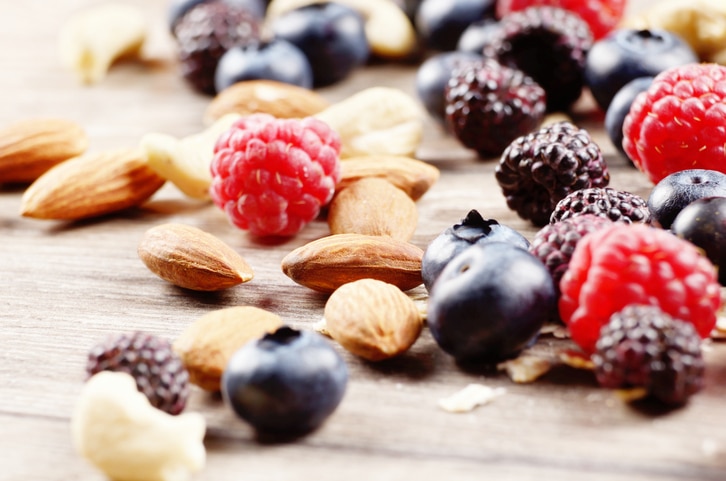Editor’s Note: We are happy to announce that world-renowned brain health expert Dr. Paul Nussbaum is joining our team at The Institute for Natural Healing.
He is an adjunct professor in neurological surgery at the University of Pittsburgh School of Medicine. Dr. Nussbaum’s groundbreaking work was recently featured in The New York Times.
Watch your inbox in the coming weeks for Dr. Nussbaum’s advice on how to prevent brain aging and keep your mind sharp.
 By Dr. Paul Nussbaum
By Dr. Paul Nussbaum
If someone asked you to name the fattiest part of the human anatomy, you might guess the stomach. Or the hips. Or perhaps the buttocks.
After all, there is an entire weight-loss industry built around trying to get rid of undesirable fat in these areas.
In truth, the fattiest part of the body is the brain. It is actually 60% fat. Brain fat is different than the fat around your middle. It is good for you. It insulates nerve cells and helps them communicate with each other.
When the brain lacks fat, it is unable to think efficiently. A person may suffer attention problems or sadness. But your diet can provide a direct pathway to build the robust level of fat that is crucial for your brain.
There are two broad categories of foods that are good for the brain.
Recommended for You: Does Your Fridge Hold This Alzheimer’s-Beating Secret?
In one study, 21 patients with Alzheimer’s drank this common fruit juice each day. After 30 days, their mood and behavior improved. They experienced less anxiety, depression, and delusion. The head researcher noted, “They had a better quality of life.” Another study on mice found the same thing.
And surprisingly, eating the whole fruit just isn’t as effective. Find out why HERE.
The ‘Low-Fat’ Diet Myth
For years we were told that all dietary fat is bad. We now know that when it comes to the brain, not all fat is created equal.
The best fats for brain health are those with omega-3 fatty acids. These are polyunsaturated fats found primarily in fish, nuts, and seeds. Omega-3s help the brain process information more rapidly. They help keep brain cells (neurons) flexible.
To get enough omega-3 fatty acids, eat fish every week. Snack on nuts. The best choices are almonds, walnuts, and pistachios. Add flaxseeds to salads, soups, and smoothies. And use olive oils when cooking or making dressings. They contain compounds that are converted to brain-healthy long-chain omega-3s.
Your Brain’s Housekeeper
Foods containing antioxidants are another part of your diet that promote brain health. Antioxidants help cleanse the body of dangerous free radicals. They are destabilized oxygen molecules that damage organs, including the brain. Think of antioxidants as the “broom” that sweeps away the “dirt” of free radicals.
The best source of antioxidants are fruits and vegetables. You should aim for seven portions a day. The best choices are those that are organic and deeply colored. Berries are an excellent option, including blueberries, strawberries, and cranberries.
Save Your Brain
We used to think that there wasn’t much a person could do to stay mentally fit as they grew older. We thought we were stuck with our genetic fate. But new research shows that’s not true. There are many ways we control our own cognitive destiny.
In the coming weeks, I look forward to telling you more about what you can do to ward off dementia, prevent memory loss, and improve your brain performance.
Like this Article? Forward this article here or Share on Facebook.

